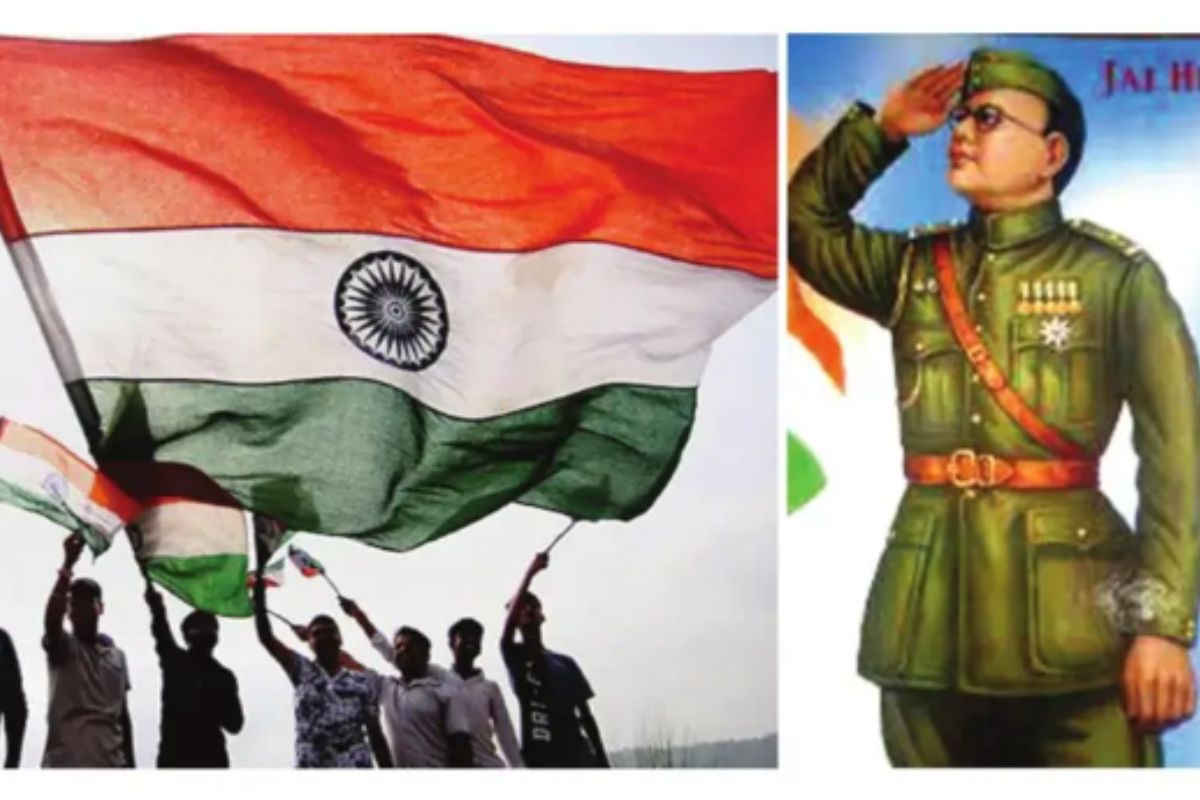Prime Minister Modi pays tribute to Subhas Chandra Bose on Parakram Diwas
Prime Minister Narendra Modi led the nation in commemorating the birth anniversary of legendary freedom fighter Netaji Subhas Chandra Bose
The forward march of Netaji’s liberation army unnerved and unsettled the British rulers in India decisively.

Subhas Chandra Bose’s leftist calls for land reform and labour rights did not go down well with the big landowners and industrialists like G D Birla on whose support Gandhi and the Congress depended.
Bose admired German discipline and military strategy. Coupled with it was his pure patriotism and self-belief that helped him challenge the mighty British Empire which no other Indian could even dare dream of at that time. During the final years of the freedom struggle he was the single biggest threat to the Empire.
The forward march of Netaji’s liberation army unnerved and unsettled the British rulers in India decisively and apart from expediting the exit of the British from Indian soil, the INA’s role was also among the factors responsible for the subsequent dismantling of the British Empire from the rest of the world as Indian forces were no longer available for employment to reinforce colonisation.
Advertisement
This fact has been grudgingly accepted by many who belonged to the British or the Allied group and also by many Indians who were generally critical of his radical policies and his wartime alliances.
Many of Netaji’s detractors, both Indian and foreign, are obsessed with the fact of Subhas’s siding with the Nazis and the Empire of Japan and are myopic about the fact that Subhas’s primary goal was to free India from British rule and transform it into a united, prosperous, and egalitarian society.
In his INA, Netaji brought together people from different castes, religions, and languages to fight for a common cause. Partition of the country on religious lines was not even in his distant dream, nor was the scenario where social and economic development was hindered by petty or divisive politics.
Clement Attlee, the British Prime Minister between 1945 and 1951, was reported to have made the observation that it was Bose, and not Gandhi, who was responsible for the hasty departure of the British in 1947. Attlee, as was presented by General GD Bakshi in his book, Bose: An Indian Samurai, told this to the then Governor of Bengal when he came to Calcutta during his tour of India.
Nehru, who disliked Netaji’s policy of seeking help of the Nazis and the Japanese for the emancipation of India, nevertheless paid this tribute to his former colleague: “In the struggle for the cause of India’s independence he has given his life and has escaped all those troubles which brave soldiers like him have to face in the end. He was not only brave but had a deep love for freedom. He believed, rightly or wrongly, that whatever he did was for the independence of India… Although I did not personally agree with him in many respects, and he left us and formed the Forward Bloc, nobody can doubt his sincerity. He struggled throughout his life for the independence of India, in his own way”.
But wish fulfillment of the masses with respect to their beloved leader cannot be merely restricted to token gestures. A lot remains to be done on the part of the government, politicians as well as individuals in pursuit of the fulfillment of Netaji’s dreams.
Although a great number of files have been declassified during the NDA regime, more files, both within India and abroad, need to be brought to light to decode Netaji’s disappearance mystery after the so-called plane crash and also to throw light on many events, policies, and personalities during Netaji’s time and thereafter.
A draft publication of the book on INA prepared by the defence ministry and authored by late historian Pratul Chandra Gupta was withheld by the UPA government and that book is still to be brought to light.
A long-standing demand to declare Netaji’s birthday as a national holiday remains unfulfilled. The dismantling of the Planning Commission which was first conceptualised by Netaji did not find favour with many countrymen who considered the formation of Niti Aayog in place of the previous Commission an affront to Netaji’s vision and memory. Hundreds of institutions, buildings, roads, stadiums and awards have been named after the members of the NehruGandhi family
Advertisement